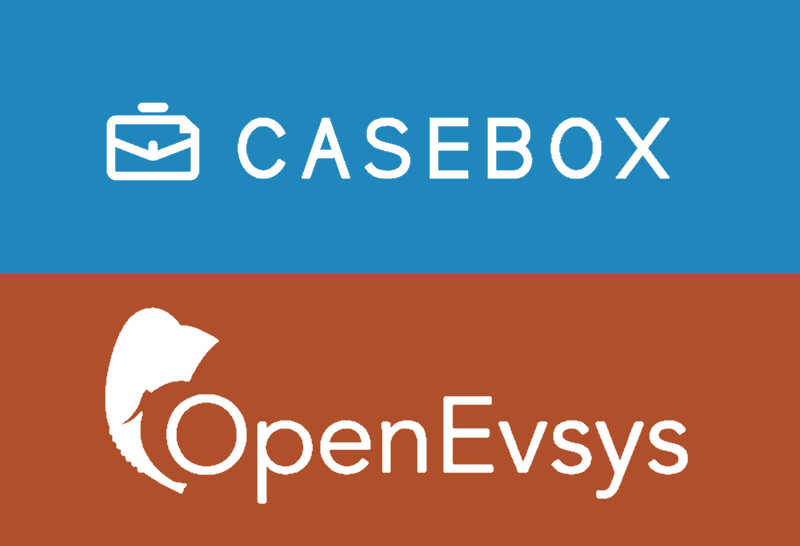Whether in a courtroom or in the hearts of society, justice isn’t always freely given. It requires safely preserved evidence and a well-structured case; it requires extensive collaboration and dedication. And importantly, it requires that the team of human rights defenders leading the push for justice have reliable and suitable tools at their disposal.
Over the past decade, we at HURIDOCS have worked to meet this need by developing two different applications: Casebox, a tool for case management, and OpenEvsys, a tool for recording the essential details of human rights violations. Numerous groups around the world have leveraged them in the pursuit of justice, from documenting enforced disappearances across Asia and abuses against migrants in the Americas, to tracking strategic litigation in Eastern Europe and mapping human rights case law in Africa.
More recently, several of our partners have also been using another one of our tools to support their case management and documentation efforts: Uwazi. While this newer database application was originally designed for organising collections of documents, its flexibility and features lend themselves well to these other streams of human rights information work.
For a small organisation like ours, it is resource-intensive to develop and maintain three separate solutions with three separate codebases. Justice is a long-term effort, so with an eye to sustainability, we have made the decision to officially sunset Casebox and OpenEvsys, and focus on expanding Uwazi to fully enable human rights documentation and case management.
What does this mean? Although Casebox and OpenEvsys will continue to function as they currently do for some time, we will no longer be making improvements or fixes to their code. Through the next year, we will be working with our partners who use Casebox and OpenEvsys to migrate to Uwazi or identify an actively developed third-party solution.
If you self-host a Casebox or OpenEvsys project, please get in touch with Director of Programmes Kristin Antin (kristin@huridocs.org) to discuss the transition.
Casebox, OpenEvsys and Uwazi: A journey
For more than three decades, we at HURIDOCS have supported human rights organisations with tools and strategies to better document abuses. We began with Evsys, a DOS application built in 1989 that followed the Events Standard Methodology. In the early 2000s, we replaced Evsys with WinEvsys, which was built on Microsoft Access.
Then in 2009 we debuted OpenEvsys, our first web application. While OpenEvsys served documenters well in the years that followed, human rights defenders increasingly looked for a system that would meet a more diverse set of needs. So, we turned our attention to Uwazi.
As for Casebox, we first began to develop the tool in 2011, working closely with software development consulting firm Ketse. Many human rights groups have since incorporated Casebox, using the platform to collaborate within their own organisation or even across an international coalition of organisations.
Opportunities can present themselves where you least expect them. After we launched Uwazi in 2017, it soon became clear that with imagination and development, Uwazi had potential beyond just its intended use case.
Uwazi for case management and documentation of violations
Uwazi allows you to categorise information, cross-reference documents and define relationships between records. It includes powerful search to look for information across the database and within a specific record or document; you can also mix and match different filters to narrow down your results.
Additionally, we have recently developed several additional features in Uwazi that support human rights documentation and case management, including:
More freedom to move data in and out
- The ability for administrators to import and export data via CSV, making it easier to move data in and out of Uwazi, including from and to other documentation tools or into sophisticated data analysis and visualisation software
Support for a wider variety of file formats
- Better support for non-text media, including video and audio, making it easier to link potential evidence with records of events, victims and perpetrators
- Support for geolocation fields and map visualisations, to allow geographic display of information recorded
Collaboration and localisation
- Public submission forms as a simple way to receive data from contributors
- Improved synchronisation features, making it easier to collaborate across several instances of Uwazi
- Integration with Digital Evidence Vault to make it easier to archive pieces of social media content and link them to events, persons and other templates
- Support for right-to-left languages, including Arabic, and better translation management
Security
- Two-factor authentication for better account protection
- An audit log, which allows administrators to monitor the database for suspicious behaviour
Advanced user permissions (in order to limit an individual or group’s access to certain information on the platform in a more nuanced way) is actively in development and expected to be implemented before the end of this year.
Although Uwazi isn’t a one-for-one replacement of Casebox and OpenEvsys for every use case, it can provide greater flexibility to how your database is structured. Several of our partners already use Uwazi to document human rights violations and engage in case and complaints management. And we’ll be regularly expanding Uwazi’s feature set from here on out.
Thank you to contributors and partners
If you’re in need of a human rights case management or documentation solution and would like to know more about Uwazi, please get in touch.
We’d like to express our deep appreciation to everyone who has supported Casebox and OpenEvsys over the years — especially to Ketse, whose hard work made Casebox possible, and to our partners who used both tools to pursue justice and accountability. And to all of our partners, peers and funders who are helping us to expand Uwazi for these purposes, thank you!
